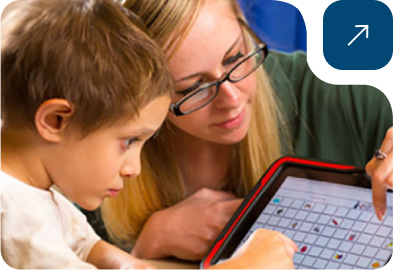Receptive and Expressive Language
Receptive language refers to how an individual understands language. Expressive language refers to how an individual uses words to express themselves.
Our overarching goal is to help children and adults feel successful when they interact with others.















